Kruijswijk expects Blockhaus to open gaps at Giro d'Italia
Dutchman survives early scares to remain in GC battle
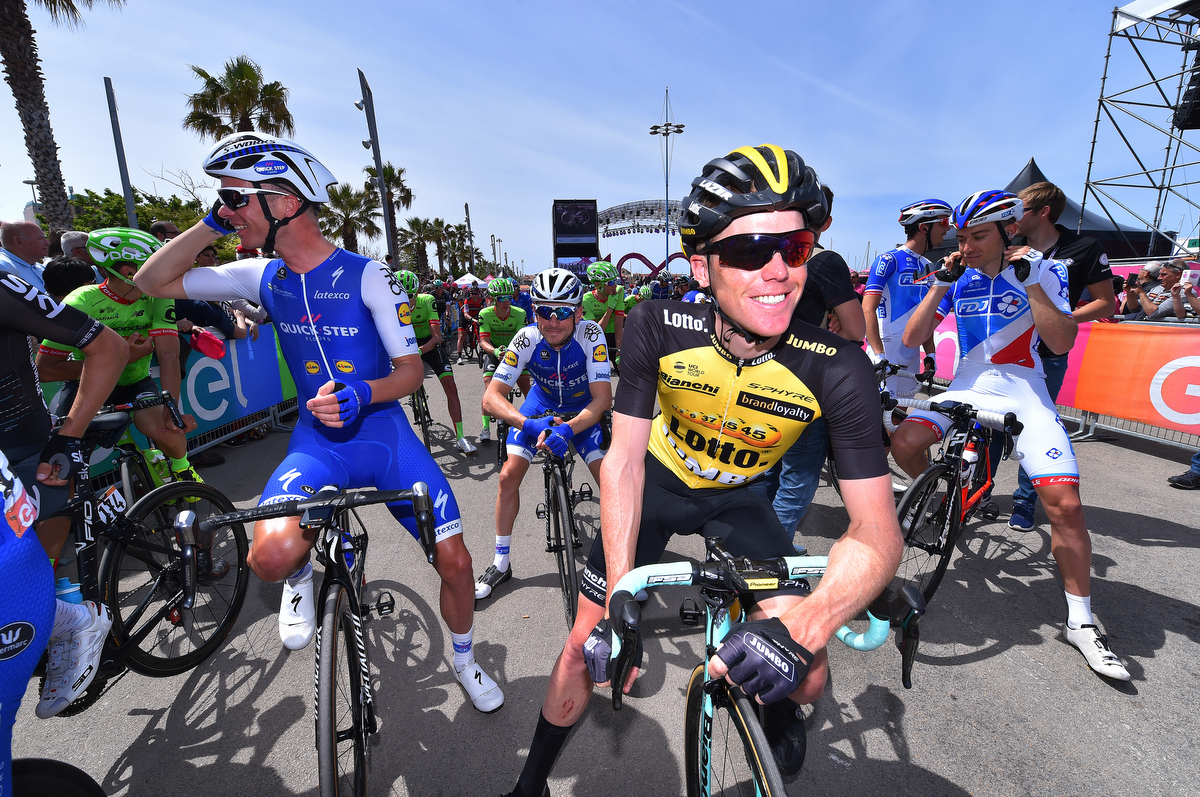
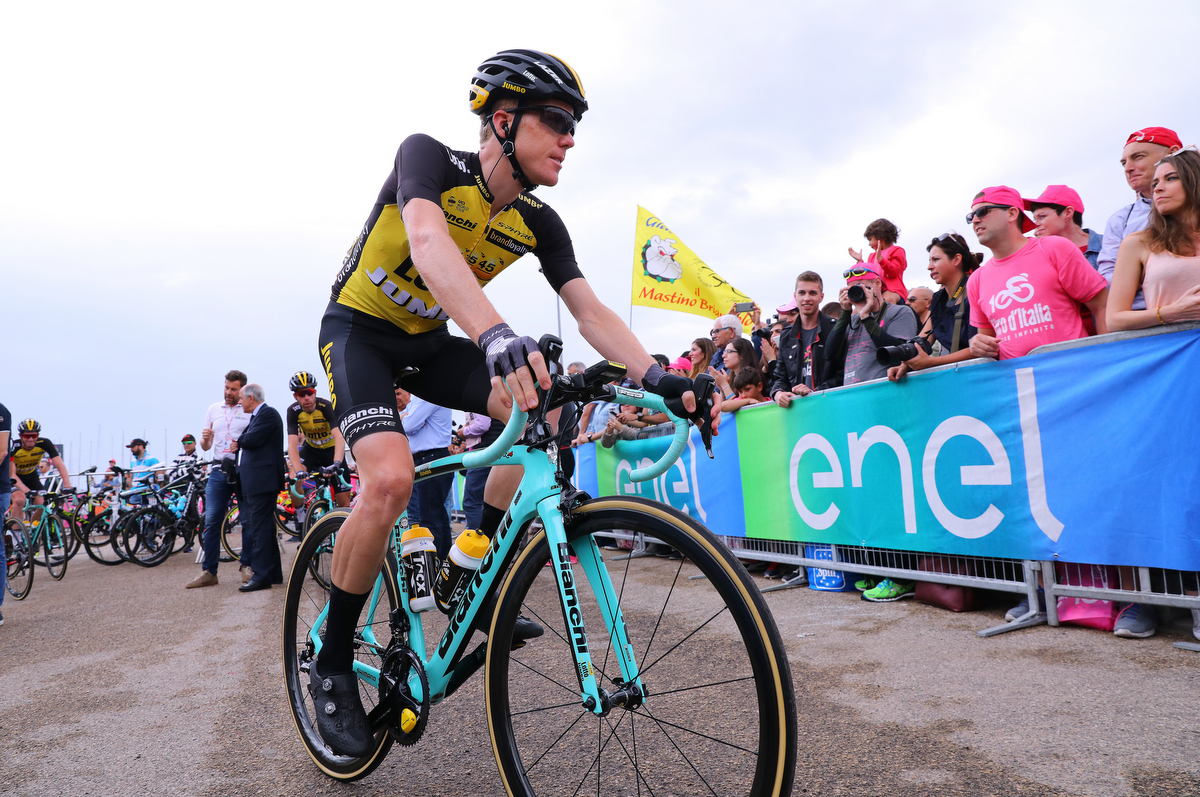
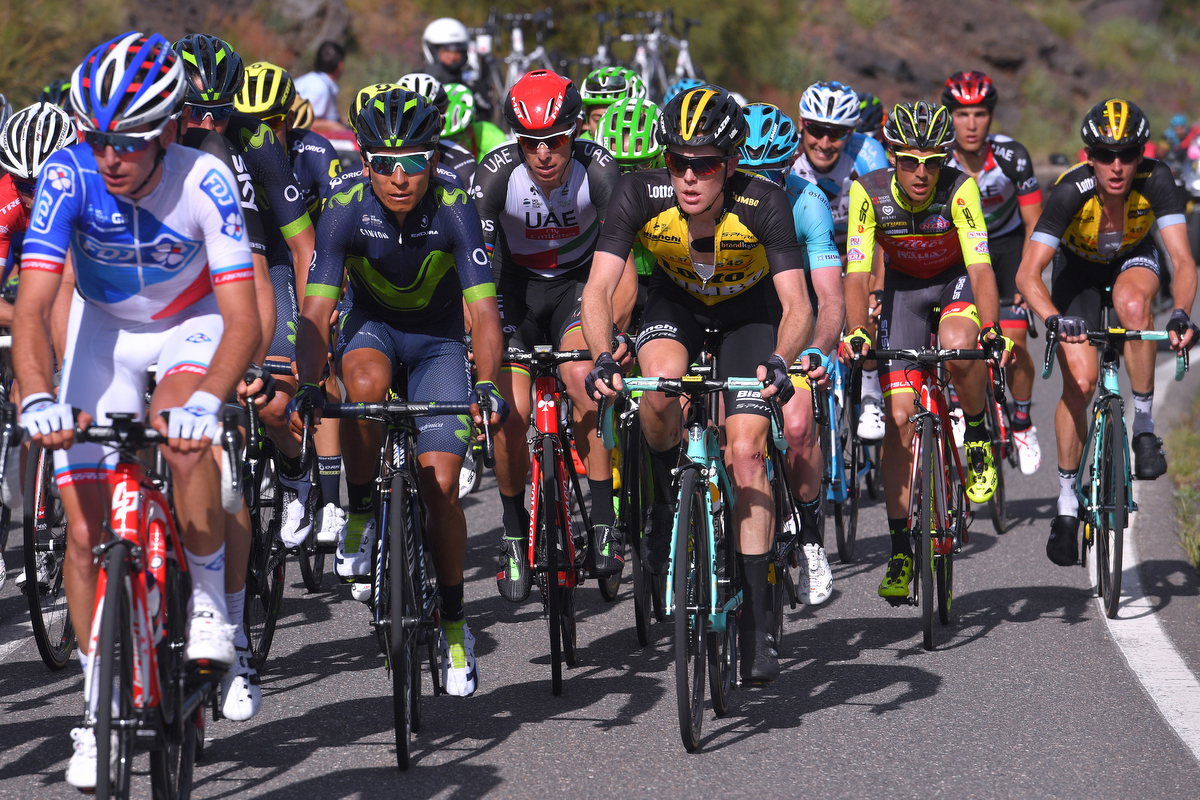
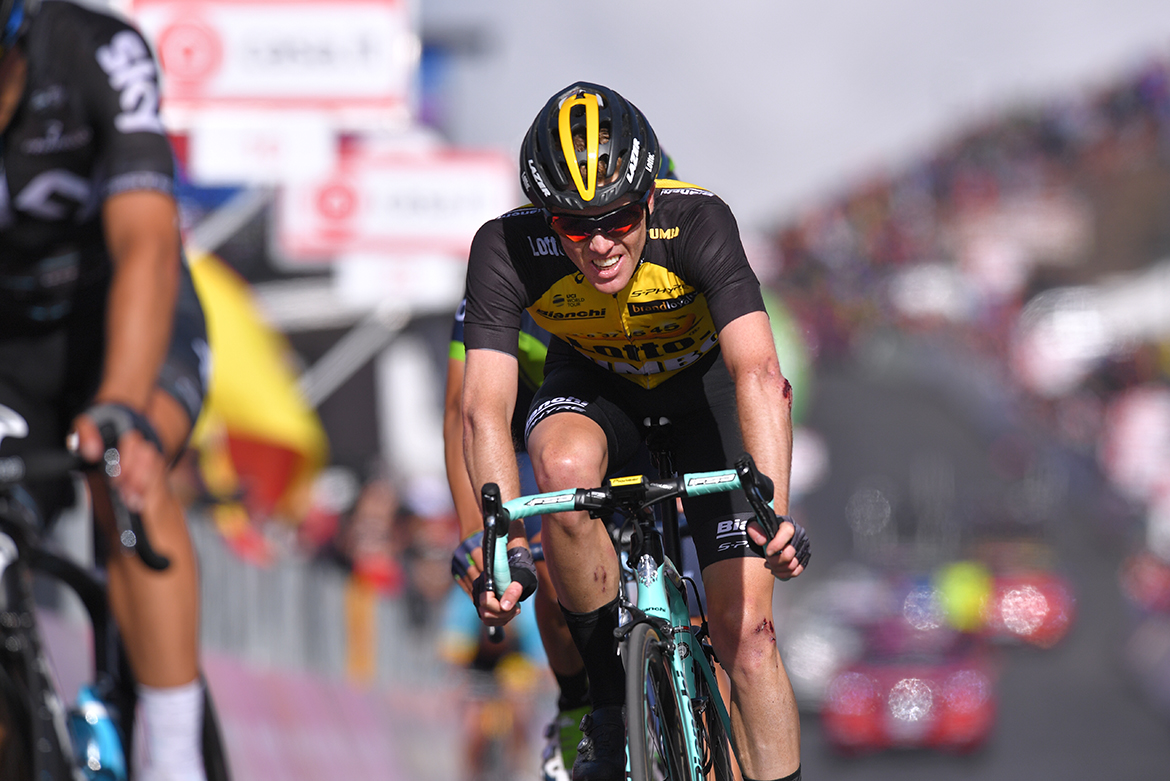
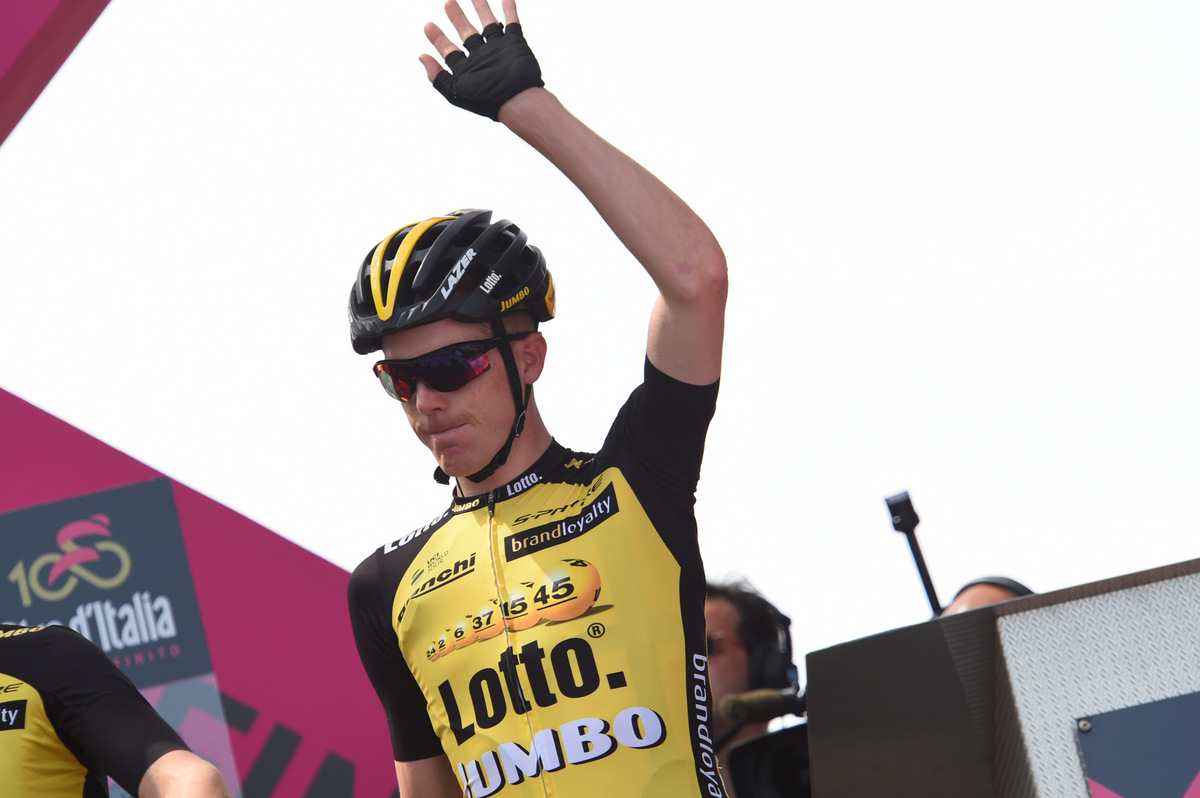
Steven Kruijswijk's Giro d'Italia began inauspiciously when he lost time behind a crash on the opening day in Olbia and he flirted with disaster when he fell on the approach to Mount Etna on Tuesday, but he is keenly aware that it could all have been a whole lot worse.
Kruijswijk to count on new recruits for Giro d'Italia
Kruijswijk loses time in hectic Giro d'Italia opener
Kruijswijk angry after more bad luck - Giro d'Italia shorts
Giro d'Italia: Stage 6 highlights - Video
Looming Blockhaus climb set to break stalemate in battle for pink - Giro d'Italia Podcast
Giro d'Italia: Steeper, longer version of Blockhaus climb than any previous visit - Preview
As the Giro reaches the Italian mainland, Kruijswijk is the worst-placed of the men with designs on the final podium in Milan, but everything is relative at this early juncture in the race. He approaches the end of the opening week in 15th place overall, 23 seconds down on maglia rosa Bob Jungels (Quick-Step) but just 13 behind the pre-race favourites Nairo Quintana (Movistar) and Vincenzo Nibali (Bahrain-Merida).
"Yeah, I'm satisfied about how I'm feeling in the legs. It would have been better if the crash didn't happen or if I didn't lose time on the first stage as well, but it's nothing to worry about," Kruijswijk told Cyclingnews in Reggio Calabria on Thursday. "There are still two hard weeks to come and I think the next coming stages will be pretty important as well. There's a tricky final on Saturday and on Sunday we climb Blockhaus. There are a lot of days to come where you can pick up some time or lose some time so we will see."
The gauze on Kruijswijk's arm hints at the travails he endured on the Giro's treks across Sardinia and Sicily, but beyond forcing him into a breathless pursuit, his crash at the base of Mount Etna did relatively little to impede his progress on the haul to the finish. "I felt pretty good. Of course, coming back after a crash isn't the best way to start a climb, but it was maybe in my favour that there was a little headwind and everybody took it a bit easier," he said. "For me, it was just about not losing time."
The Giro's much-anticipated maiden summit finish did little to separate the podium contenders, save for a clever late attack from Ilnur Zakarin (Katusha-Alpecin). Thus far, no rider has singled himself out above the others, and no one team has looked to force the issue early in the manner of Astana in 2015. Even the leading lights themselves are unsure of who will shine the brightest come the next major rendezvous on the climb of the Blockhaus on stage 9.
"It's hard to say. You see some guys tried to attack on Etna in the last few k, and they were always closed down. Zakarin got the space and he put in a good effort in the final and showed he's pretty strong. but for the rest it's hard to say," Kruijswijk said. "It was just one final climb and it wasn't full gas all the way up, so it's hard to say. We will see Sunday, I think."
At 13.6 kilometres in length, the Blockhaus is a shorter climb than Mount Etna, but its slopes are more demanding. The gradient averages 8.4% and kicks up to a maximum of 14%. With the fatigue of more than a week of racing in their legs, and with a rest day to follow immediately afterwards, it will be a surprise if the overall contenders are as tightly packed come Sunday evening.
Get The Leadout Newsletter
The latest race content, interviews, features, reviews and expert buying guides, direct to your inbox!
"I haven't seen the climb before, so it will be new for me, but I think it will be harder," Kruijswijk said. "It will already be stage 9 or something, the end of the first block, so I think the difference will be made there."

Barry Ryan was Head of Features at Cyclingnews. He has covered professional cycling since 2010, reporting from the Tour de France, Giro d’Italia and events from Argentina to Japan. His writing has appeared in The Independent, Procycling and Cycling Plus. He is the author of The Ascent: Sean Kelly, Stephen Roche and the Rise of Irish Cycling’s Golden Generation, published by Gill Books.